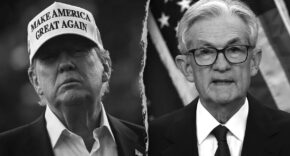BlackRock, the world’s largest asset manager, has quietly but decisively distanced itself from environmental, social, and governance (ESG) initiatives and diversity, equity, and inclusion (DEI) policies. Once at the forefront of corporate activism, BlackRock has now backed away from key commitments, including its participation in climate coalitions and diversity hiring mandates. This shift is a response to growing legal scrutiny, political pressure from conservative states, and the shifting business landscape under a second Trump administration.
The firm’s reversal is significant, given its previous commitment to these causes. As recently as 2021, BlackRock CEO Larry Fink wrote to shareholders, stating, “To truly drive change, we must embed DEI into everything we do.” Now, just four years later, those words have all but disappeared from BlackRock’s messaging. In its latest annual report, the company eliminated all references to DEI, replacing them with vague statements about “diverse perspectives” and “avoiding groupthink.” This marks a stark contrast from past years when the firm explicitly highlighted racial and gender diversity statistics and promoted inclusive hiring practices.
The Political and Legal Backlash Against ESG
BlackRock’s retreat from ESG and DEI is largely a reaction to an orchestrated backlash led by conservative lawmakers, oil-and-gas lobbyists, and right-wing advocacy groups. The movement against so-called “woke capitalism” gained traction in 2022, with Republican-led states passing laws limiting the influence of ESG policies in financial decision-making. State attorneys general launched investigations into BlackRock’s ESG practices, and congressional inquiries painted the firm as a symbol of corporate overreach.
“This woke capitalism thing, two years ago, nobody had heard the term,” said Mindy Lubber, CEO of sustainability nonprofit Ceres. “I still can’t really tell you what it means, but it’s been very effective.” The phrase has since become a rallying cry for conservative politicians and activists, who argue that corporate efforts to address climate change and social inequality amount to political activism at the expense of shareholder interests.
The legal risk became tangible when BlackRock found itself embroiled in lawsuits from red states, culminating in a high-profile settlement with Tennessee in January 2025. Though the firm admitted no wrongdoing, the message was clear—remaining publicly committed to ESG initiatives carried significant legal and reputational risks.
A Calculated Move to Stay in Trump’s Favor
One key factor behind BlackRock’s policy reversal is CEO Larry Fink’s longstanding relationship with President Donald Trump. Unlike other corporate leaders who have found themselves in Trump’s crosshairs, Fink has managed to maintain open channels with the administration. Trump has previously praised Fink’s investment acumen, and BlackRock executives are reportedly still influential in Trump’s economic circle.
Crucially, BlackRock has remained out of Trump’s direct line of attack, even as he has ramped up his rhetoric against ESG. “Fink and other BlackRock executives still have the Trump team’s ear on economic issues,” reported The Wall Street Journal, citing sources familiar with the matter. This positioning is likely a calculated effort to ensure that BlackRock avoids being targeted in the same way as other major financial institutions that have remained committed to ESG principles.
With Trump’s renewed focus on dismantling “woke” corporate policies—an effort led by Attorney General Pam Bondi—BlackRock’s decision to exit ESG coalitions and scrap DEI targets appears to be a strategic move to avoid regulatory scrutiny. In January 2025, just weeks before Trump’s second inauguration, BlackRock quietly withdrew from the United Nations-sponsored Net Zero Asset Managers initiative, a key climate coalition. The timing was no coincidence—Trump’s administration was already signaling an aggressive stance against corporate ESG policies.
Steps Taken to Distance from ESG and DEI
BlackRock’s transformation has been methodical and far-reaching:
- Exit from Climate Coalitions: The firm withdrew from Net Zero Asset Managers, citing legal risks and political pressure. The coalition, which had once been a flagship initiative for BlackRock, quickly found itself on shaky ground after the asset manager’s exit.
- Curtailing DEI Policies: BlackRock eliminated aspirational workforce diversity targets, stopped requiring managers to interview diverse candidates, and removed DEI language from its annual report. The internal memo explaining these changes cited “significant changes to the U.S. legal and policy environment” as a key factor in the decision.
- Silencing ESG Rhetoric: The firm’s communications now emphasize financial performance and fiduciary duty over social responsibility. A far cry from Fink’s 2020 declaration that “climate risk is investment risk.”
- Changing Investment Priorities: BlackRock has dramatically reduced its support for ESG shareholder resolutions, backing only 4% in 2024 compared to 40% in 2021. This shift aligns with a broader industry trend, as asset managers reevaluate the financial and legal risks of ESG-related investments.
- Financial Restructuring: The firm renegotiated a $4.4 billion credit facility to remove sustainability-linked pricing metrics, a move that underscores its departure from ESG-driven financial incentives. Previously, these provisions had linked lending costs to targets for women in senior leadership and Black and Latino employees in the workforce. The removal of these terms represents a significant step away from BlackRock’s former commitments.
A Future Defined by Pragmatism
Despite facing criticism from progressive investors and climate activists, BlackRock has doubled down on a business-first approach. The firm’s leadership argues that ESG had become a politicized and weaponized term, making it a liability rather than an asset. By pivoting away from activist-driven investing, BlackRock is focusing on its core mission—maximizing returns for clients.
Michael Littenberg, global head of the ESG practice at Ropes & Gray, put it bluntly: “ESG was conflated with being woke. Many managers have gotten smarter about addressing the backlash.” BlackRock, it seems, is at the forefront of that shift.
The firm’s approach now aligns more closely with the current political climate. With Trump in office and a Republican-led House scrutinizing corporate governance, BlackRock’s retreat from ESG ensures its survival in an increasingly hostile regulatory environment. The company’s messaging has shifted toward pragmatic investment strategies, emphasizing its stewardship of Americans’ retirement assets rather than ideological commitments.
BlackRock’s reversal on ESG and DEI represents one of the most significant corporate pivots in recent history. Once a champion of progressive corporate policies, the firm has chosen to sidestep controversy and avoid the financial and legal risks associated with “woke” capitalism. Whether this shift is seen as pragmatism or a capitulation to political pressure, it marks the end of an era for BlackRock and sets a precedent for how corporations navigate the evolving political landscape under a Trump administration.
For BlackRock, the future is clear: stay focused on financial performance, avoid political battles, and ensure continued dominance in the investment world. As one of Wall Street’s most powerful institutions, its decisions will likely influence how other corporations approach ESG and DEI in the years to come.











